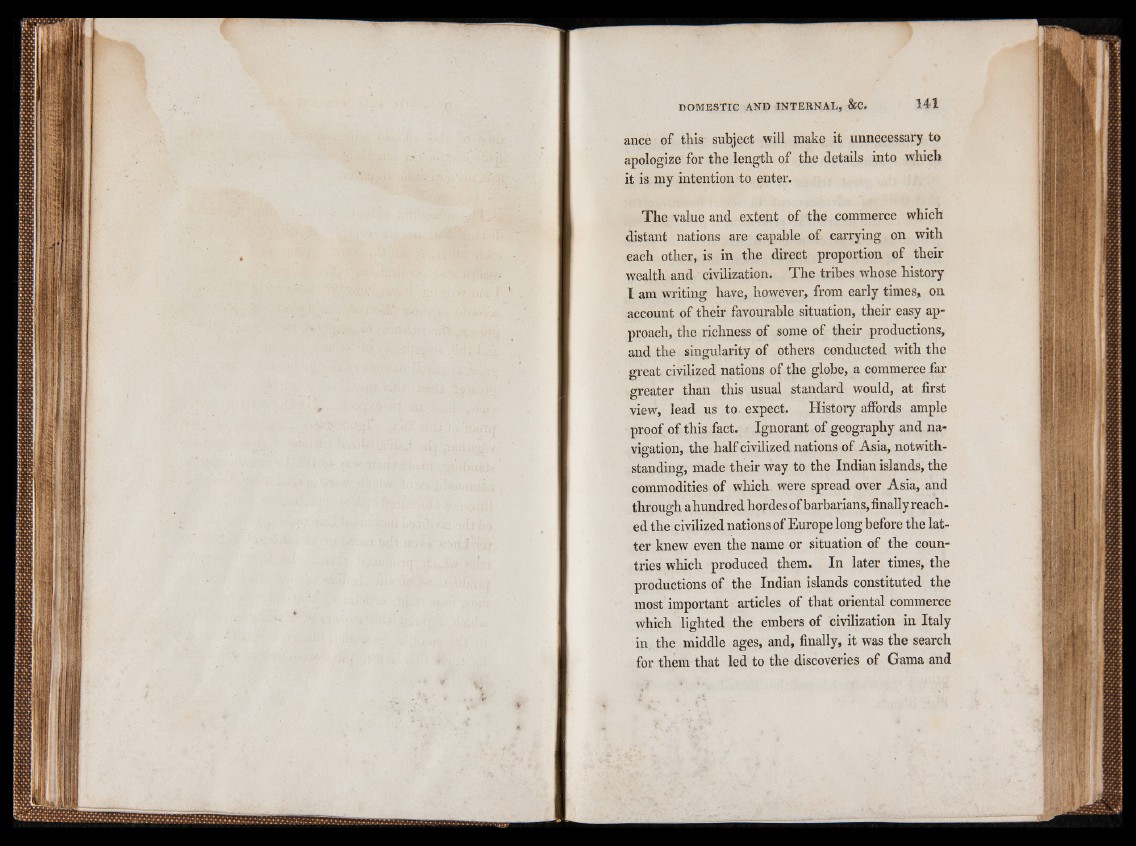
ance of this subject will make it unnecessary to
apologize for the length of the details into which
it is my intention to enter.
The value and extent of the commerce which
distant nations are capable of carrying on with
each other, is in the direct proportion of their
wealth and civilization. The tribes whose history
1 am writing have, however, from early times* on
account of their favourable situation, their easy approach,
the richness of some of their productions,
and the singularity of others conducted with the
great civilized nations of the globe, a commerce far
greater than this usual standard would, at first
view, lead us to expect. History affords ample
proof of this fact. Ignorant of geography and navigation,
the half civilized nations of Asia, notwith- o 7 standing, made their way to the Indian islands, the
commodities of which were spread over Asia, and
through ahundred hordes of barbarians, finally reached
the civilized nations of Europe long before the latter
knew even the name or situation of the countries
which produced them. In later times, the
productions of the Indian islands constituted the
most important articles of that oriental commerce
which lighted the embers of civilization in Italy
in the middle ages, and, finally, it was the search
for them that led to the discoveries of Gama and